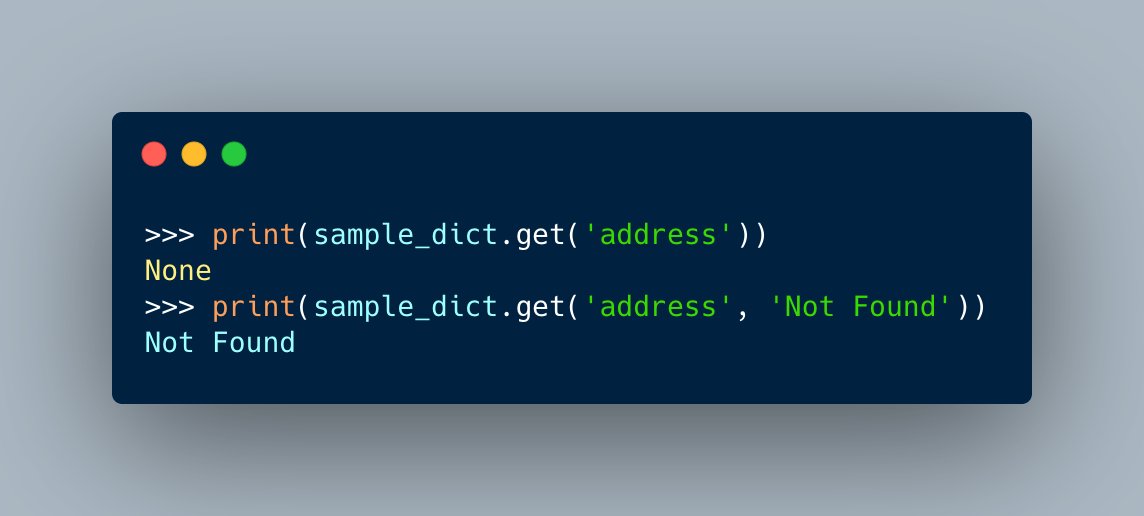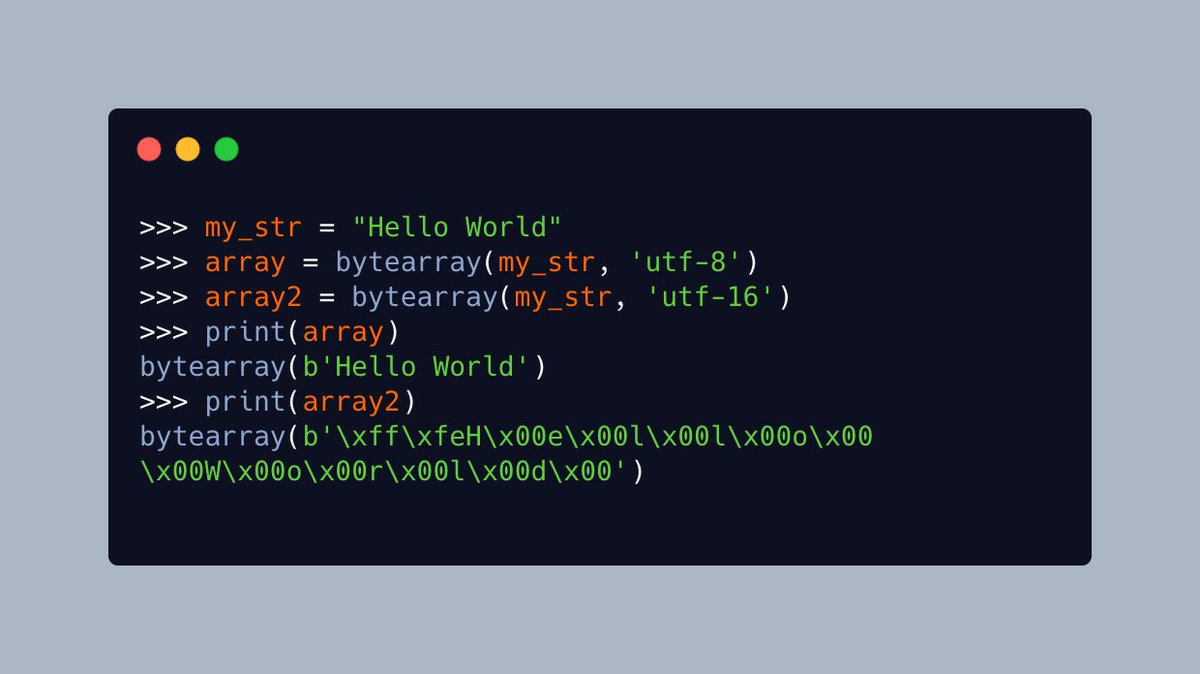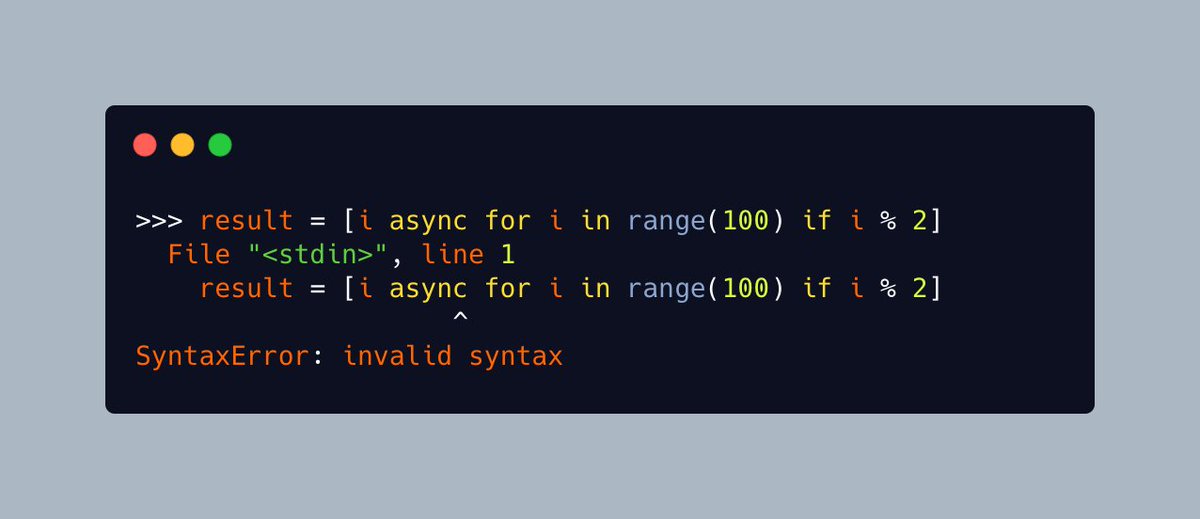
One of #Python's most controversial built-in functions is `eval()`. The main reason it is controversial is that it can be used to execute arbitrary code.
#python_builtins_by_driscollis
🧵🐍👇
#python_builtins_by_driscollis
🧵🐍👇
The arguments for `eval()` are a string and optional globals and locals. If provided, globals must be a dictionary. If provided, locals can be any mapping object.
Here is an example:
Here is an example:

You can use `eval()` to evaluate/execute the arbitrary code objects that you get when you run Python's `compile()` function.
The `eval()` built-in is closely related to the `exec()` built-in. `exec()` will take a code block while `eval()` only takes a single expression
The `eval()` built-in is closely related to the `exec()` built-in. `exec()` will take a code block while `eval()` only takes a single expression
I hope you enjoyed learning a little about `eval()` with me. Be sure to use it wisely and only with input that you have complete control over.!
• • •
Missing some Tweet in this thread? You can try to
force a refresh
















